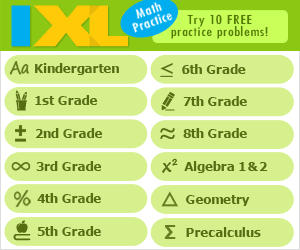SAT/ACT Vocabulary List for 06/30/2010
Here is today's word list:
- aberration (n.): Deviation from a right, customary, or prescribed course.
- adamant (n.): Any substance of exceeding hardness or impenetrability.
- alter (v.): To make change in.
- antiseptic (n.): Anything that destroys or restrains the growth of putrefactive micro-organisms.
- assonate (v.): To accord in sound, especially vowel sound.
- belligerent (adj.): Manifesting a warlike spirit.
- bristle (n.): One of the coarse, stiff hairs of swine: used in brush-making, etc.
- caustic (adj.): Sarcastic and severe.
- commingle (v.): To blend.
- conscious (adj.): Aware that one lives, feels, and thinks.
- corroboration (n.): Confirmation.;
- decency (n.): Moral fitness.
- deride (v.): To ridicule.
- disconnect (v.): To undo or dissolve the connection or association of.
- doleful (adj.): Melancholy.
- emanate (v.): To flow forth or proceed, as from some source.
- equilibrium (n.): A state of balance.
- expiate (v.): To make satisfaction or amends for.
- finite (adj.): Limited.
- frolicsome (adj.): Prankish.
- grapple (v.): To take hold of.
- hoodwink (v.): To deceive.
- imperfectible (adj.): That can not be perfected.
- indestructible (adj.): That can not be destroyed.
- inscribe (v.): To enter in a book, or on a list, roll, or document, by writing.
- invaluable (adj.): Exceedingly precious.
- kingling (n.): A petty king.
- liquefy (v.): To convert into a liquid or into liquid form.
- maneuver (v.): To make adroit or artful moves: manage affairs by strategy.
- militant (adj.): Of a warlike or combative disposition or tendency.
- mouthful (n.): As much as can be or is usually put into the or exercise.
- norm (n.): A model.
- opinion (n.): A conclusion or judgment held with confidence, but falling short of positive knowledge.
- pamphleteer (v.): To compose or issue pamphlets, especially controversial ones.
- pentagram (n.): A figure having five points or lobes.
- phosphorescence (n.): The property of emitting light.
- potential (n.): Anything that may be possible.
- privy (adj.): Participating with another or others in the knowledge of a secret transaction.;
- pugnacious (adj.): Quarrelsome.
- recognize (v.): To recall the identity of (a person or thing).
- repellent (adj.): Having power to force back in a manner, physically or mentally.
- rotary (adj.): Turning around its axis, like a wheel, or so constructed as to turn thus.
- sense (n.): The signification conveyed by some word, phrase, or action.;
- sparse (adj.): Thinly diffused.
- successor (n.): One who or that which takes the place of a predecessor or preceding thing.
- telescope (v.): To drive together so that one slides into the another like the sections of a spy-glass.
- transmissible (adj.): That may e sent through or across.
- unguent (n.): Any ointment or lubricant for local application.;
- vestige (n.): A visible trace, mark, or impression, of something absent, lost, or gone.
- wry (adj.): Deviating from that which is proper or right.
How To Master These Words
- Create or buy a notebook. It can be named SAT/ACT Vocabulary Notebook or you can create your own name. You will be keeping your weekly words, definitions and assignments in this notebook.
- Write the words and definitions in your vocabulary notebook.
- Create your own sentence using each word and write this in your vocabulary notebook.
- Make Flashcards - Write the word on one side of an index card and put the definition and a sentence on the opposite side. You can find ideas for making flashcards on the Internet by clicking on the link: Resources showing how to create your own flashcards.
- Online Flashcard Game: Go to this site. lingro.com. Click on "wordlist" at the top of the page. Then click on "create new wordlist." Enter your word list for the week. When finished, click on "games" at the top of the page. Then click on "flashcards" and select your list. See if you can name the definition on each word before clicking on it to see the answer.
- Use this dictionary link to check the pronounciation of each word. Type each word in the box on the left, then click the sound icon to listen.
- Use TokBox to practice saying the words aloud. Register to get a free account. Click on "Send a Video Message." A box will open to set up your computer microphone and camera. Click "allow". Press the red "Record" button to begin. Press the "Stop" button when you are finished. Once you have practiced saying the words and recording it, send the video you created to your email account and listen to your video message. Send it to your parents' email account also to show them what you are learning.
- Create your own crossword puzzle. Click on this link. Enter your words and your clues (definition), then click "Create Crossword Now." A new web page will appear. You can put a title on your puzzle if you wish, then click "Create Crossword." Print this out and complete the puzzle. Insert the completed work in your vocabulary notebook.
Search Internet4Classrooms

Custom Search






